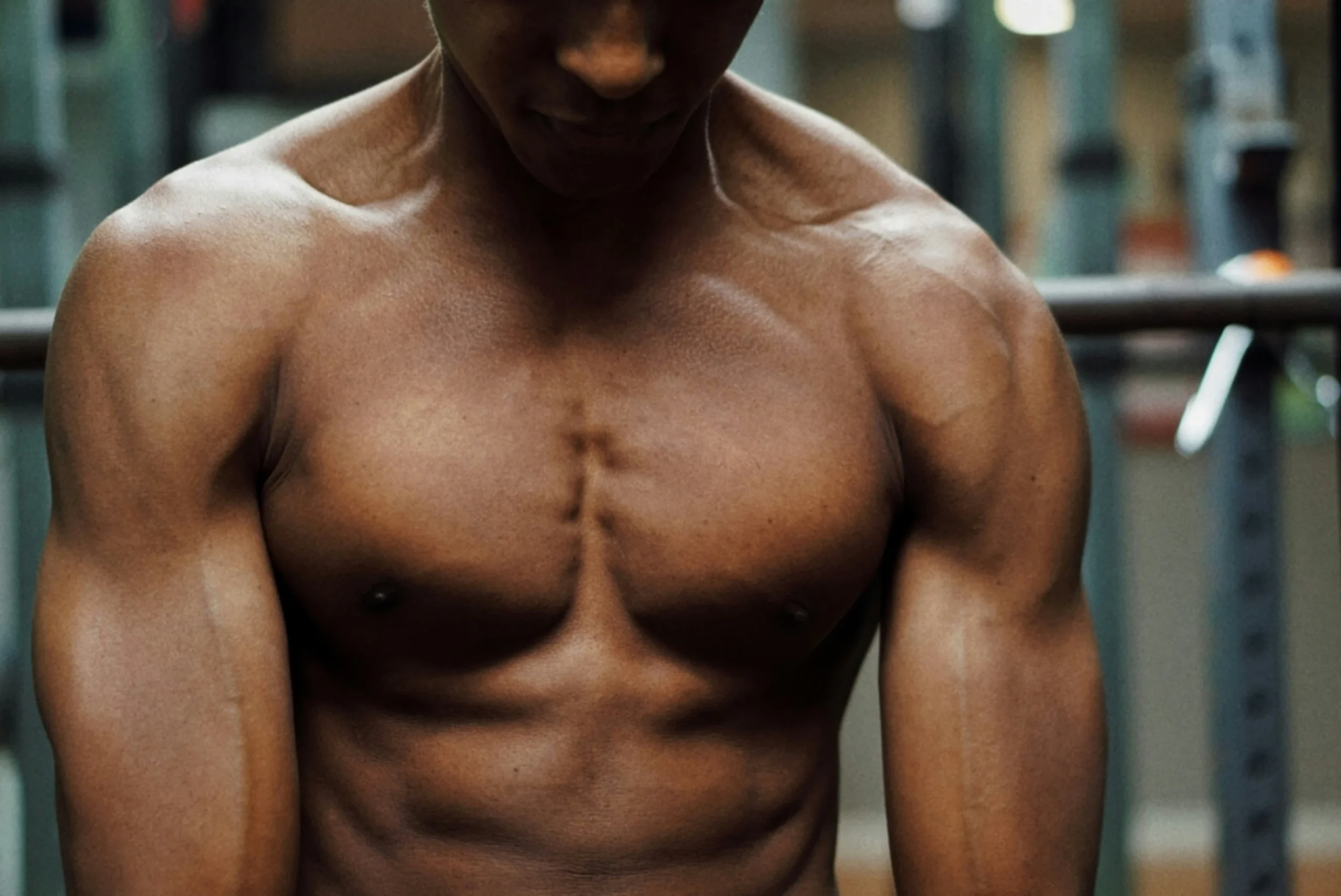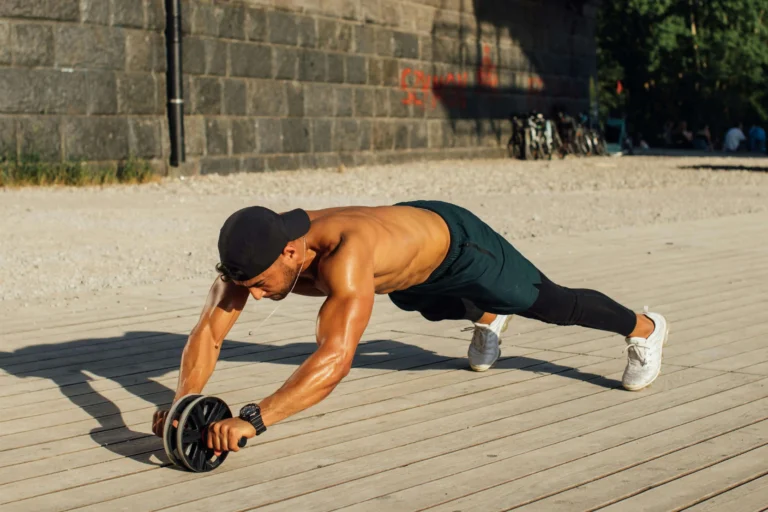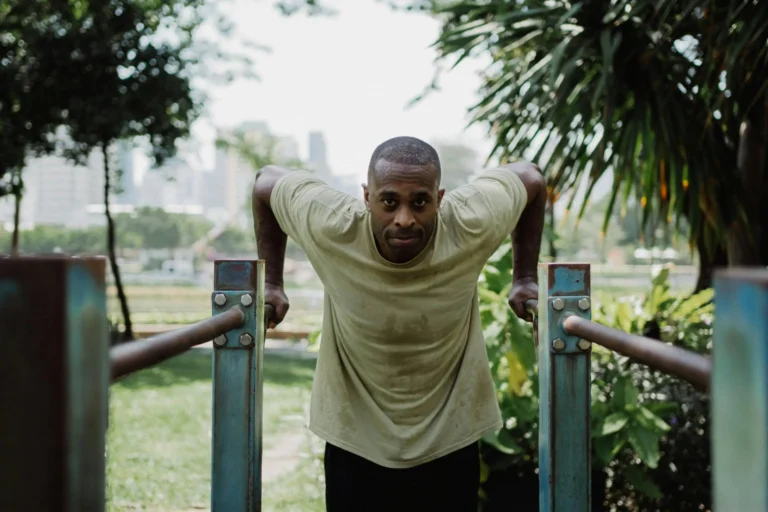Chest Shoulder Workout: 5 Explosive Moves for Massive Strength Gains
Table of Contents
Want to develop a bigger, stronger upper body that turns heads? A strategic chest shoulder workout is your secret weapon to rapid gains. By combining these major pushing muscles in one session, you’ll maximize time under tension, boost hypertrophy, and accelerate results. In this guide, you’ll discover everything you need—from anatomy to programming—to build your ultimate chest shoulder workout.
Why Combine Chest and Shoulders in One Workout?
Pairing your chest and shoulders in one session offers several performance and aesthetic benefits:
- Train synergistic muscles for enhanced activation
- Save time with focused, efficient workouts
- Push heavier with better shoulder stability during chest exercises
- Recover smarter by organizing your weekly split more effectively
- Improve muscle balance and overall symmetry
When done right, this duo becomes a powerhouse routine to elevate your upper body strength and shape. A solid chest shoulder workout can dramatically improve not only your physique but also your posture and functional strength.
Understanding the Muscle Groups Involved
Before designing your chest shoulder workout, you need to know which muscles you’re training:
Chest Muscles:
- Pectoralis major (clavicular, sternal, and abdominal fibers)
- Pectoralis minor (beneath the major, aiding in scapular movement)
Shoulder Muscles:
- Anterior (front) deltoid: heavily involved in pressing
- Lateral (side) deltoid: builds width and roundness
- Posterior (rear) deltoid: balances posture and shoulder health
Most chest exercises already engage the anterior delts, so your chest shoulder workout should include targeted movements for the other deltoid heads too.
Sample Chest Shoulder Workout for Muscle Mass and Power
This gym-based chest shoulder workout focuses on building muscle and improving pushing power. Complete it 1–2 times per week, with at least 48 hours between sessions.
Dynamic Warm-Up (5–10 Minutes)
- Jump rope or treadmill incline walk (3–5 min)
- Arm swings and circles
- Resistance band pull-aparts and shoulder dislocates
Main Chest Shoulder Workout Plan
| Exercise | Sets | Reps | Rest | Muscle Focus |
|---|---|---|---|---|
| Barbell Bench Press | 4 | 6–8 | 90 secs | Chest + anterior deltoid |
| Incline Dumbbell Press | 3 | 8–10 | 60 secs | Upper chest and front delts |
| Seated Dumbbell Press | 3 | 6–8 | 90 secs | Entire deltoid with chest support |
| Dumbbell Lateral Raise | 3 | 12–15 | 45 secs | Lateral delts for width |
| Cable Chest Fly | 3 | 10–12 | 45 secs | Chest isolation and contraction |
| Dumbbell Front Raise | 2 | 12–15 | 45 secs | Anterior deltoid burnout |
Focus on controlled tempo and full range of motion. Use progressive overload to increase strength over time.
Chest Shoulder Workout for Home Training
Even without gym access, you can get solid results with bodyweight and resistance bands:
- Standard Push-ups – 3 sets to failure
- Pike Push-ups – 3 sets of 10–12 reps
- Dips Between Chairs – 3 sets of 10–15 reps
- Band Lateral Raises – 3 sets of 12–15 reps
Make each rep count by using slow negatives and squeezing the target muscles. This version of the chest shoulder workout works best when performed with intensity and limited rest.
Chest Shoulder Superset Workout (Time-Efficient Option)
Supersets are a great way to intensify your chest shoulder workout and cut down on time.
| Superset | Exercise A | Exercise B | Sets | Reps |
| 1 | Incline Dumbbell Press | Dumbbell Lateral Raise | 3 | 10–12 |
| 2 | Push-ups | Pike Push-ups | 3 | 12–15 |
| 3 | Cable Chest Fly | Dumbbell Front Raise | 3 | 10–12 |
Perform A and B back-to-back with no rest, then rest 60–90 seconds between supersets. This keeps the pump going and challenges both chest and shoulder muscles continuously.
How to Structure Your Chest Shoulder Workout for Growth
Training Frequency
- Train chest and shoulders once or twice per week depending on your split
- Ensure 48–72 hours between push workouts to recover
Progressive Overload
- Gradually increase weights, reps, or sets over time
- Log your lifts and set weekly improvement goals
- Prioritize form over ego lifting
Deload and Recovery
- Schedule a deload week every 6–8 weeks
- Sleep 7–9 hours per night
- Stay hydrated and prioritize joint mobility
Recovery is essential. Your muscles grow when you rest—not just when you train. Don’t underestimate the power of sleep and mobility.
Nutrition for Muscle Gain from Your Chest Shoulder Workout
Fuel your gains with the right macronutrient strategy:
Daily Macronutrient Targets:
- Protein: 1.6–2.2 grams per kg of body weight
- Carbs: Prioritize around your training window
- Fats: 0.8–1g per kg to support hormones
Hydration:
- 3–4 liters of water per day depending on activity
Muscle-Building Supplement Stack:
| Supplement | Benefit | Dosage |
| Whey Protein | Supports muscle recovery | 25–30g post-workout |
| Creatine Monohydrate | Increases power and endurance | 5g daily |
| Beta-Alanine | Delays muscular fatigue | 2–3g pre-workout |
| Pre-Workout Blend | Enhances energy and focus | Follow label |
Always consult a healthcare provider before adding new supplements to your chest shoulder workout routine.
Common Mistakes That Sabotage Chest Shoulder Workouts
Don’t let these issues stall your progress:
- Only training pressing movements (no rear delts)
- Skipping warm-up and risking injury
- Poor form under heavy loads
- Neglecting recovery and sleep
- Inconsistent nutrition and hydration
Fixing these habits ensures your chest shoulder workout leads to consistent muscle growth.
Advanced Tips for Even Better Results
Want to take your chest shoulder workout to the next level? Try these:
- Use drop sets on your final isolation movements
- Incorporate paused reps for increased time under tension
- Track your workout tempo and avoid bouncing reps
- Alternate between barbells and dumbbells every few weeks
Tweaks like these stimulate fresh muscle growth and prevent plateaus.
Recommended Gear for Better Performance
Whether at home or in the gym, having the right gear can level up your chest shoulder workout:
Home Equipment:
- Adjustable dumbbells
- Resistance bands with handles
- Incline-adjustable bench
Gym Essentials:
- Barbell and squat rack
- Cable crossover machine
- Dumbbells (up to 100 lbs or more)
- Adjustable bench with incline/decline
Choose tools that match your goals and training space.
Chest Shoulder Workout FAQs
Can I train chest and shoulders in the same session?
Yes! It’s efficient and effective. Just balance volume and recovery.
How often should I do a chest shoulder workout?
1–2 times per week is ideal, with 48–72 hours between sessions.
What rep ranges are best?
- Compound lifts: 6–8 reps for strength
- Isolation exercises: 10–15 reps for hypertrophy
Do I need to train rear delts too?
Absolutely. Rear delts are often neglected. Add reverse flys or face pulls on back day.
Can I build muscle at home?
Yes. Consistency, progressive overload (even with bodyweight), and intensity matter more than fancy equipment.
Final Thoughts: Commit to Your Chest Shoulder Workout Routine
You now have everything you need to build a chest shoulder workout that delivers real results. Whether you’re lifting at home or in the gym, the key is consistency, intensity, and smart recovery.
Here’s your step-by-step action plan:
- Pick your preferred workout setup (gym or home)
- Stick to progressive overload and clean form
- Eat and sleep to grow
- Track your performance weekly
- Consider using supersets for time-efficient gains
Want to accelerate your progress? Download our free Chest Shoulder Workout Tracker and take your upper body to the next level. Start today, stay consistent, and your dream physique will become a reality.







